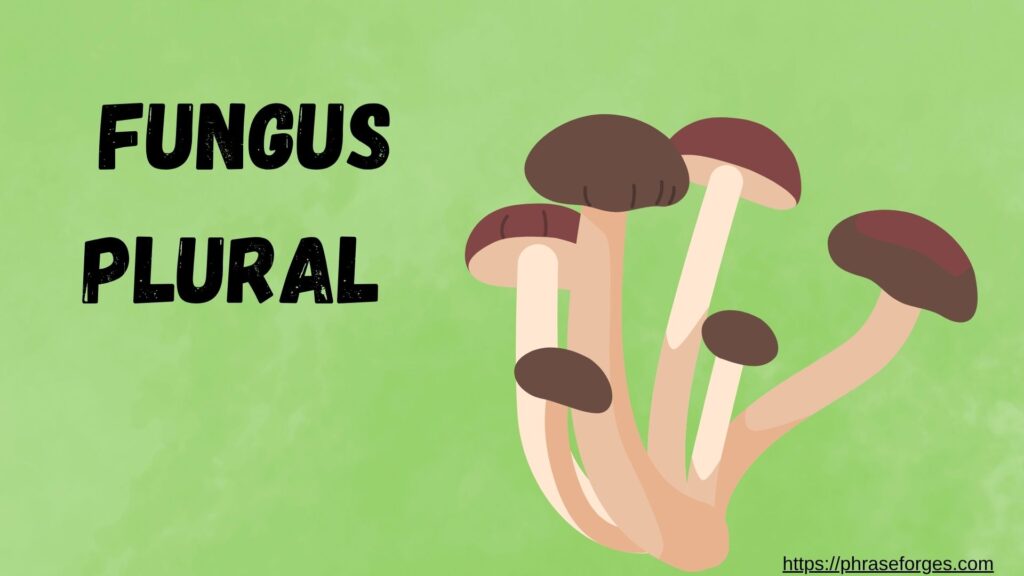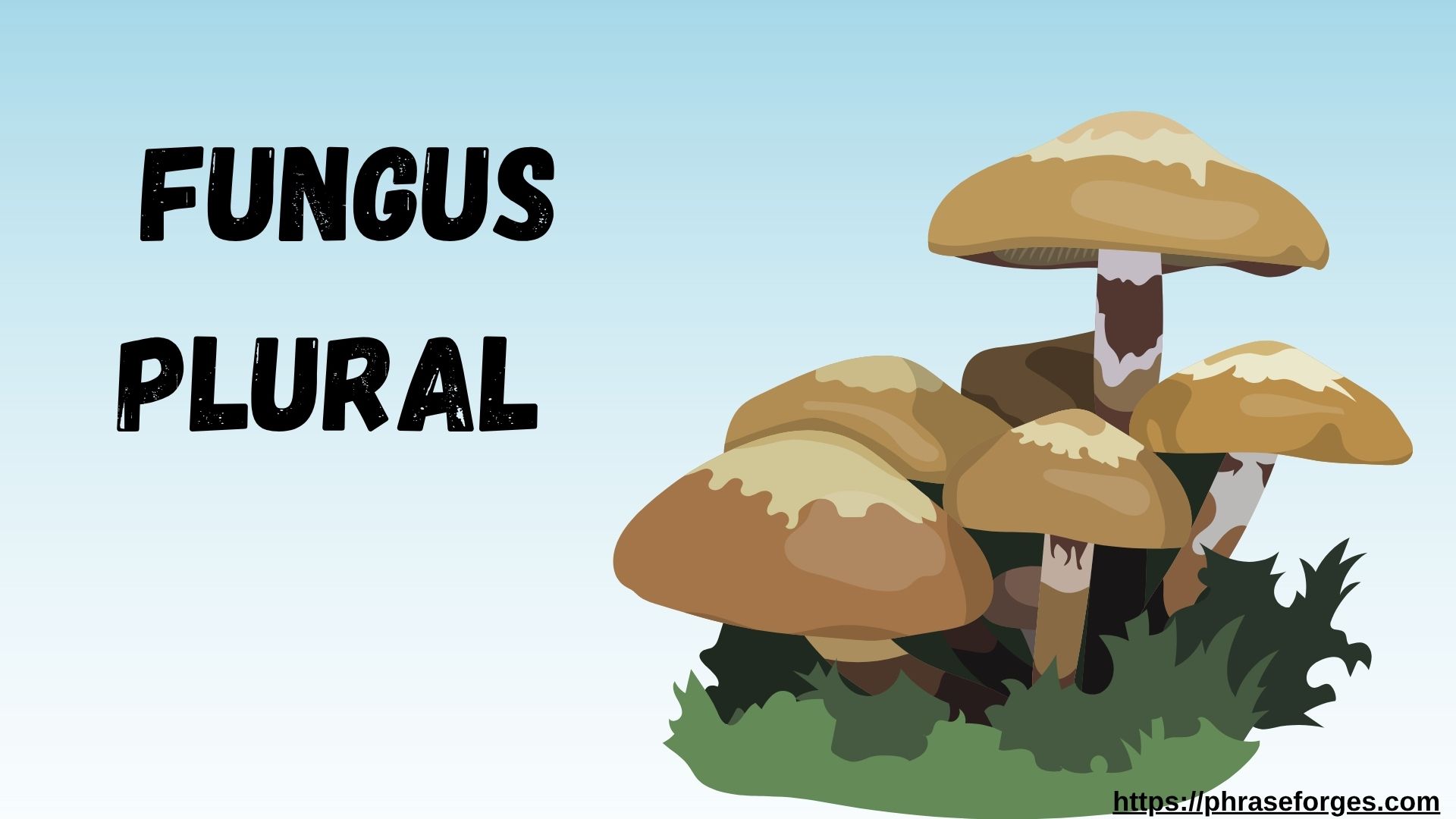The English language is full of quirks, and one such puzzle lies in understanding the fungus plural form. Should you say fungi or funguses? Both forms exist, but knowing when and how to use them is key, especially if you want to sound precise in both scientific and everyday contexts. Let’s break it down with clear rules, usage examples, and practical scenarios like emails where you might encounter or use these terms.
✅ Fungus Plural Form: The Basics

The singular form is fungus, which comes from Latin. Its classical plural is fungi, following the -us to -i suffix rule often seen in words like cactus → cacti or alumnus → alumni.
However, in American English, an alternative plural funguses is also accepted and often used in non-scientific contexts.
- Fungi → Preferred in scientific writing and formal contexts (biology, mycology).
- Funguses → More common in casual or everyday English in the U.S.
📧 Scenario Example: Formal Usage in an Email
Subject: Updated Research Report on Fungi Growth
Hi Dr. Ramirez,
I’ve attached the revised section on the fungi samples collected from the northern forest site. The fungi’s spore analysis confirmed two new species previously undocumented in the region.
Best regards,
Samantha Greene
Graduate Student – Mycology Department
Here, fungi fits because the context is academic and scientific.
📧 Scenario Example: Informal Usage in an Email
Subject: Weird Funguses in My Garden!
Hey Jake,
You won’t believe this I found some strange funguses growing near the compost heap. They look like tiny umbrellas! Do you think they’re safe to touch?
Cheers,
Laura
In everyday speech, funguses feels natural and conversational, especially outside formal settings.
🔬 Why Are There Two Plurals? (Fungus to Fungi Conversion)

English absorbed many words from Latin and Greek, especially in science. Traditionally, Latin words ending in -us changed to -i in plural (e.g., focus → foci). But as English evolved, Americanized plural forms like funguses emerged to simplify usage.
Both are correct, but their acceptability depends on context:
- Scientific/technical writing → Use fungi.
- Everyday English or casual writing → Funguses works fine.
📖 Clear Rules & Patterns for Usage
Here’s how to remember which to use:
- Use fungi when discussing the Kingdom Fungi or referencing mycology (the scientific study of fungi).
- Use funguses in general conversation, media, or informal writing.
- Avoid mixing them in the same piece of writing for consistency.
📌 Examples in Sentences
Correct Usage:
- The fungi responsible for mold growth were isolated in the lab.
- Several funguses appeared overnight in our backyard after heavy rain.
Incorrect Usage:
- ✗ The fungi is spreading fast.
- ✗ These fungi’s are poisonous.
Fix: Remember that fungi is plural and requires are, while fungus takes is.
📧 Scenario: Explaining Grammar to a Colleague
Subject: Quick Grammar Note – Fungus Plural Form
Hi Ethan,
When drafting the environmental report, make sure to use fungi when referring to multiple species in the context of scientific data. In less formal sections, funguses is acceptable.
Best,
Nina Patel
🧠 Common Mistakes & Fixes
- ❌ Using fungus when referring to more than one.
- ❌ Saying “funguses” in formal research papers (use fungi instead).
- ❌ Confusing fungus singular or plural usage in verbs (e.g., “fungi is” vs. “fungi are”).
🔍 Quick Reference Table
| Singular | Plural (Scientific) | Plural (Casual) | Context Use |
|---|---|---|---|
| Fungus | Fungi | Funguses | Science (fungi) vs. Everyday (funguses) |
🧾 Tying It to Other Irregular Plurals
The fungus plural form mirrors other Latin-based nouns:
- Cactus → Cacti (or Cactuses)
- Syllabus → Syllabi (or Syllabuses)
- Octopus → Octopuses (sometimes Octopi)
This pattern of dual forms reflects how English balances its Latin roots with modern simplifications.
🌱 Fungus Examples in Context

In biology, fungi refer to an entire group including mushrooms, yeasts, molds, mildews, and rusts.
Example: “These forest fungi play a vital role in decomposing organic matter.”
In casual English:
Example: “After the storm, weird funguses popped up along the fence.”
🎯 Key Takeaway
When in doubt, remember:
- Use fungi for academic/scientific writing.
- Use funguses for casual conversation or everyday writing.
- Stay consistent within your context.
Understanding the plural of fungus not only helps in grammar but also makes you sound more precise whether you’re discussing mycology, gardening, or everyday observations.

